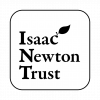Submitted by Administrator on Tue, 22/01/2019 - 15:23
Over 40 international researchers and students attended the Epirecipes Hackathon, which was co-sponsored by CID thanks to generous support from the Isaac Newton Trust. The event aimed to implement as many different epidemiological models as possible in a variety of computer languages.
Over 40 international researchers and students attended the Epirecipes hackathon, which was co-sponsored by CID, thanks to generous support from the Isaac Newton Trust. The event was led by Professor Simon Frost (CID), with the aim of implementing as many different epidemiological models as possible in a variety of computer languages. Participants could collate/share mathematical models of infectious disease (any) transmission, with implementations in R, Python, and Julia- co-creating a "cookbook".
Epirecipes explains the rationale for the event:
“Mathematical modelling of infectious diseases has become an important scientific field, yielding insights into how pathogens spread and evolve while also becoming an essential tool for informing public health strategies. There is a need to train researchers in this area, in order to help them understand the strengths and weaknesses of these models, which are used to guide government policy, as well as to expose students to a growing area of research. Modelling has played a key role in the UK in understanding the transmission of measles in humans, foot and mouth disease virus in cattle, and Chalara ash dieback in ash trees. It has also been a key component of the response to a number of major international outbreaks, such as the 2009 influenza pandemic, the Middle East Respiratory Syndrome Coronavirus (MERS-CoV), and the West African Ebola epidemic.
While there are several textbooks on modelling infectious diseases, there is a dearth of examples in the form of runnable computer code that could be used for modeling and data fitting. A ‘cookbook’ of epidemiological models would represent an important resource in expanding expertise in this area. epirecipes is a ‘hackathon’ in which students and researchers will be invited to collectively implement different models of infectious disease and different approaches to fitting these models to real data.”
The hackathon ran for three days, from October 1- October 3 2018 at the Alan Turing Institute, London, led by Professor Simon Frost. Attendees included students and early career academics from serveral LMICs. Information on what happened next in terms of any new collaborations sparked between attendees is currently being collected by the Alan Turing Institute.
The event was supported by CID/Isaac Newton Trust, The Alan Turing Institute, The Center for Communicable Disease Dynamics (CCDD) at the Harvard T.H. Chan School of Public Health, The R Epidemics Consortium, Julia Computing, Microsoft Research, with additional support from ESRC, NIH/NIGMS/MIDAS, and NumFocus. Find out more about Epirecipes.


